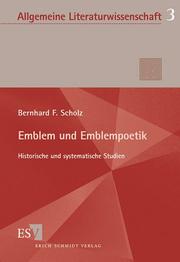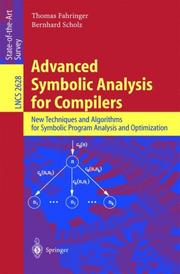| Listing 1 - 10 of 49 | << page >> |
Sort by
|
Book
ISBN: 3746211956 9783746211954 Year: 1998 Volume: 72 Publisher: Leipzig: Benno,
Abstract | Keywords | Export | Availability | Bookmark
 Loading...
Loading...Choose an application
- Reference Manager
- EndNote
- RefWorks (Direct export to RefWorks)
Die wichtigsten Theorien über den Wandel der Familie, wie sie in der 2. Hälfte des 19.Jh. in Deutschland entstanden, werden im Kontext politischer, philosophischer und kulturphilosophischer Theorien der politischen und sozialen Veränderungen dargestellt. (Benno)
Families --- Family policy --- History --- Religious aspects --- Catholic Church --- 241.64*4 --- 392.3 --- 316.356.2 --- Family --- -Family --- -Family policy --- -Families --- Families and state --- State and families --- Public welfare --- Social security --- Social policy --- Family life --- Family relationships --- Family structure --- Relationships, Family --- Structure, Family --- Social institutions --- Birth order --- Domestic relations --- Home --- Households --- Kinship --- Marriage --- Matriarchy --- Parenthood --- Patriarchy --- Theologische ethiek: partnerkeuze en huwelijk --- Familieleven. Familiesystemen. Gezinsleven. Matriarchaat. Patriarchaat. Kinship --- Gezinssociologie --- -Religious aspects --- -Catholic Church --- -Government policy --- Social aspects --- Social conditions --- -Theologische ethiek: partnerkeuze en huwelijk --- -241.64*4 --- 316.356.2 Gezinssociologie --- 392.3 Familieleven. Familiesystemen. Gezinsleven. Matriarchaat. Patriarchaat. Kinship --- 241.64*4 Theologische ethiek: partnerkeuze en huwelijk --- -316.356.2 Gezinssociologie --- Religious aspects&delete& --- Government policy --- Families - Germany - History - 19th century --- Family policy - Germany - History - 19th century --- Families - Religious aspects - Catholic Church
Year: 1911 Publisher: Mainz Scholz
Abstract | Keywords | Export | Availability | Bookmark
 Loading...
Loading...Choose an application
- Reference Manager
- EndNote
- RefWorks (Direct export to RefWorks)
Book
Year: 2012 Publisher: München Musikproduktion Höflich
Abstract | Keywords | Export | Availability | Bookmark
Book
Year: 1911 Publisher: Mainz Scholz
Abstract | Keywords | Export | Availability | Bookmark
 Loading...
Loading...Choose an application
- Reference Manager
- EndNote
- RefWorks (Direct export to RefWorks)
Book
Year: 1969 Publisher: München Neureuter
Abstract | Keywords | Export | Availability | Bookmark
 Loading...
Loading...Choose an application
- Reference Manager
- EndNote
- RefWorks (Direct export to RefWorks)
Book
Year: 2022 Publisher: New York, New York : Association for Computing Machinery,
Abstract | Keywords | Export | Availability | Bookmark
 Loading...
Loading...Choose an application
- Reference Manager
- EndNote
- RefWorks (Direct export to RefWorks)
Welcome to the 21st ACM SIGPLAN International Conference on Generative Programming: Concept & Experiences (GPCE 2022) held on December 6th and 7th, 2022 in Auckland, New Zealand. GPCE is the premiere venue for researchers and practitioners interested in techniques that use program generation, domain-specific languages, and component deployment to increase programmer productivity, improve software quality, and shorten the time-to-market of software products. In addition to exploring cutting-edge techniques of generative software, GPCE seeks to foster cross-fertilization between software engineering and programming language.
Book
Year: 1899 Publisher: Berlin Stuttgart W. Spemann
Abstract | Keywords | Export | Availability | Bookmark
 Loading...
Loading...Choose an application
- Reference Manager
- EndNote
- RefWorks (Direct export to RefWorks)
Book
ISBN: 3772021743 Year: 1998 Publisher: Tübingen Francke
Abstract | Keywords | Export | Availability | Bookmark
 Loading...
Loading...Choose an application
- Reference Manager
- EndNote
- RefWorks (Direct export to RefWorks)
Literature --- Mimesis in literature --- Reality in literature --- History and criticism --- Congresses.

ISBN: 3503061398 9783503061396 Year: 2002 Publisher: Berlin : Erich Schmidt,
Abstract | Keywords | Export | Availability | Bookmark
 Loading...
Loading...Choose an application
- Reference Manager
- EndNote
- RefWorks (Direct export to RefWorks)
Book history --- Poetry --- anno 1400-1499 --- anno 1500-1599 --- Europe --- Emblem books --- Emblems --- European poetry --- Heraldry --- Signs and symbols --- Symbolism --- Illustrated books --- History --- History and criticism

ISBN: 3540011854 3540366148 9783540011859 Year: 2003 Volume: 2628 Publisher: Berlin: Springer,
Abstract | Keywords | Export | Availability | Bookmark
 Loading...
Loading...Choose an application
- Reference Manager
- EndNote
- RefWorks (Direct export to RefWorks)
The objective of program analysis is to automatically determine the p- perties of a program. Tools of software development, such as compilers, p- formance estimators, debuggers, reverse-engineering tools, program veri?- tion/testing/proving systems, program comprehension systems, and program specializationtoolsarelargelydependentonprogramanalysis. Advancedp- gram analysis can: help to ?nd program errors; detect and tune performan- critical code regions; ensure assumed constraints on data are not violated; tailor a generic program to suit a speci?c application; reverse-engineer so- ware modules, etc. A prominent program analysis technique is symbolic a- lysis, which has attracted substantial attention for many years as it is not dependent on executing a program to examine the semantics of a program, and it can yield very elegant formulations of many analyses. Moreover, the complexity of symbolic analysis can be largely independent of the input data size of a program and of the size of the machine on which the program is being executed. In this book we present novel symbolic control and data ?ow repres- tation techniques as well as symbolic techniques and algorithms to analyze and optimize programs. Program contexts which de?ne a new symbolic - scription of program semantics for control and data ?ow analysis are at the center of our approach. We have solved a number of problems encountered in program analysis by using program contexts. Our solution methods are e?cient, versatile, uni?ed, and more general (they cope with regular and irregular codes) than most existing methods.
Compilers (Computer programs) --- Computer algorithms. --- Computer algorithms --- Computer Science --- Engineering & Applied Sciences --- Compiling programs (Computer programs) --- Computer science. --- Software engineering. --- Programming languages (Electronic computers). --- Operating systems (Computers). --- Computer logic. --- Computer Science. --- Software Engineering/Programming and Operating Systems. --- Programming Languages, Compilers, Interpreters. --- Software Engineering. --- Operating Systems. --- Logics and Meanings of Programs. --- Algorithms --- Computer programs --- Programming software --- Systems software --- Logic design. --- Design, Logic --- Design of logic systems --- Digital electronics --- Electronic circuit design --- Logic circuits --- Machine theory --- Switching theory --- Computer operating systems --- Computers --- Disk operating systems --- Informatics --- Science --- Computer software engineering --- Engineering --- Operating systems --- Computer science logic --- Logic, Symbolic and mathematical --- Computer languages --- Computer program languages --- Computer programming languages --- Machine language --- Electronic data processing --- Languages, Artificial --- Programming languages (Electronic computers) --- Operating systems (Computers)
| Listing 1 - 10 of 49 | << page >> |
Sort by
|

 Search
Search Feedback
Feedback About UniCat
About UniCat  Help
Help News
News